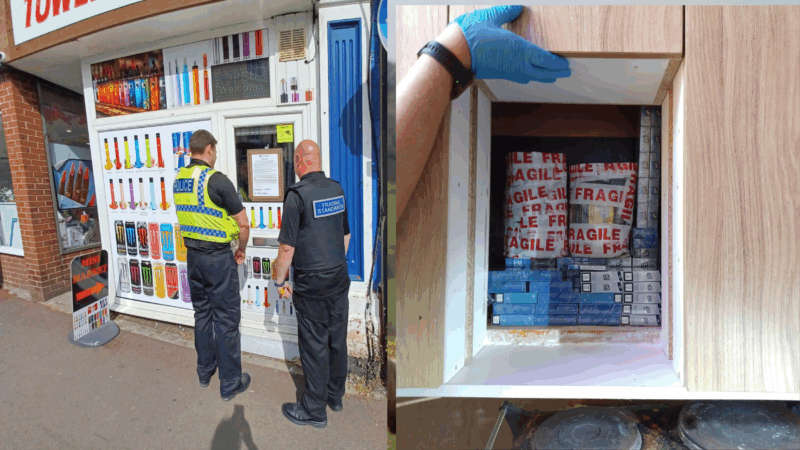
Devon County Council Trading Standards are urging consumers to be on their guard against scams as Black Friday (Friday November 29) kicks off the Christmas shopping period this week.
Devon County Council Trading Standards are urging consumers to be on their guard against scams as Black Friday (Friday November 29) kicks off the Christmas shopping period this week.
Our Trading Standards service is highlighting eight types of scams and we’re asking consumers to learn the tell-tale signs so that they can protect themselves.
Delivery scams: these are set to be particularly common this year. Typically, you get a text or email saying a parcel couldn’t be delivered for some reason. You’re then asked to click a link to pay a fee to reschedule delivery – enabling the fraudsters to steal your personal and financial information. Never click on the links in delivery texts or emails. If you are expecting a parcel from a delivery company, track it and contact them through their genuine website.
Black Friday/Cyber Monday scams: fraudsters send out emails and social media ads promoting great deals in the run up to Christmas, but in reality, the offers are fake and just a way to tempt you to give out your personal and financial information.
Fake shopping website scams: Fraudsters can create websites that look identical to reputable retailers but are in fact fake. They then lure shoppers in with deals that are too good to miss – but after paying for a product, you will probably never receive it, and the fraudsters can steal your financial information.
It can be hard to spot a fake website – this guide from Which? Has some good pointers. Additionally you can check whether a website is likely to be legitimate or a scam before you visit it, using Get Safe Online’s checker tool.
Deals that are too good to be true: we’re all looking to avoid over-spending when it comes to Christmas but remember that old saying – if it looks too good to be true, it probably is. Scammers lure shoppers in with online ads promoting seemingly great savings – but if you fall for a fake deal the item might never arrive or might not match its description. Worse – your financial information will also be in the hands of the fraudsters.
Holiday scams: Dreaming of escaping the British winter for sunnier climes? Or yearning for a winter sports getaway? From fake accommodation listings to bogus booking websites, fraudsters resort to all sorts of tricks to try and steal your money.
Follow the advice in this guide from Get Safe Online to help make sure your holiday is one to remember for all the right reasons.
E-card scams: E-cards can be a convenient way to send a greeting and fun for the recipient to open – but beware of bogus e-cards that could infect your computer and steal your financial or personal information. Find out about the risks and how to avoid bogus ecards in this guide from Get Safe Online.
Ticket fraud: Ticket fraud has been in the news this year with fake tickets to the Olympics and Oasis and Taylor Swift concerts among the biggest scams around. So, if you’re planning to buy tickets for a sports match, concert or any other event, know how to protect yourself – otherwise you could end up not only missing the event but worse, compromising your financial information. Learn more about ticket scams in this guide from Action Fraud.
Loan fee scams: Christmas can be an expensive time but if you’re after a little extra cash to help out, beware of loan fee fraud. The fraudsters ask for a fee for a loan, but once the fee is paid, the loan offered never materialises – leaving you out of pocket and with your financial information in the hands of criminals.
Visit the Financial Conduct Authority website to learn more about this scam and where you can find guidance on money issues.
Find out more about scams and how to stay safe in this article from the South West Cyber Resilience Centre.
More scams advice can be found on the Citizens Advice website. Report suspicious emails to report@phishing.gov.uk and forward scam texts to 7726.

 Five more shops closed for selling illegal tobacco products
Five more shops closed for selling illegal tobacco products
 Decision to replace paid co-responders with volunteers comes under scrutiny
Decision to replace paid co-responders with volunteers comes under scrutiny
 ‘Outrage’ over SWW chief’s potential payout
‘Outrage’ over SWW chief’s potential payout
 Child Dies After School Coach Overturns in Somerset
Child Dies After School Coach Overturns in Somerset













